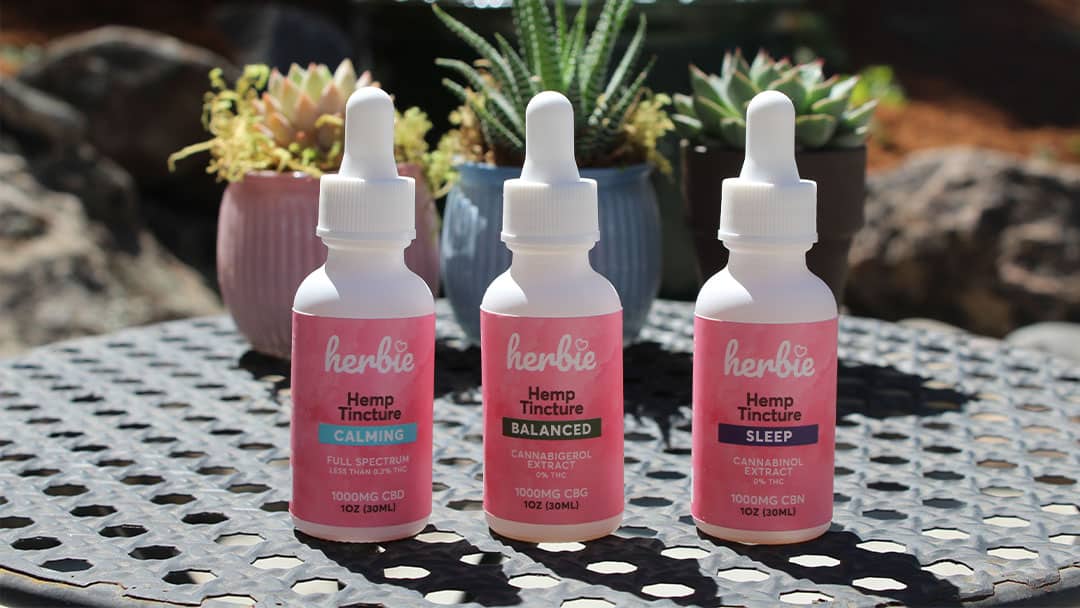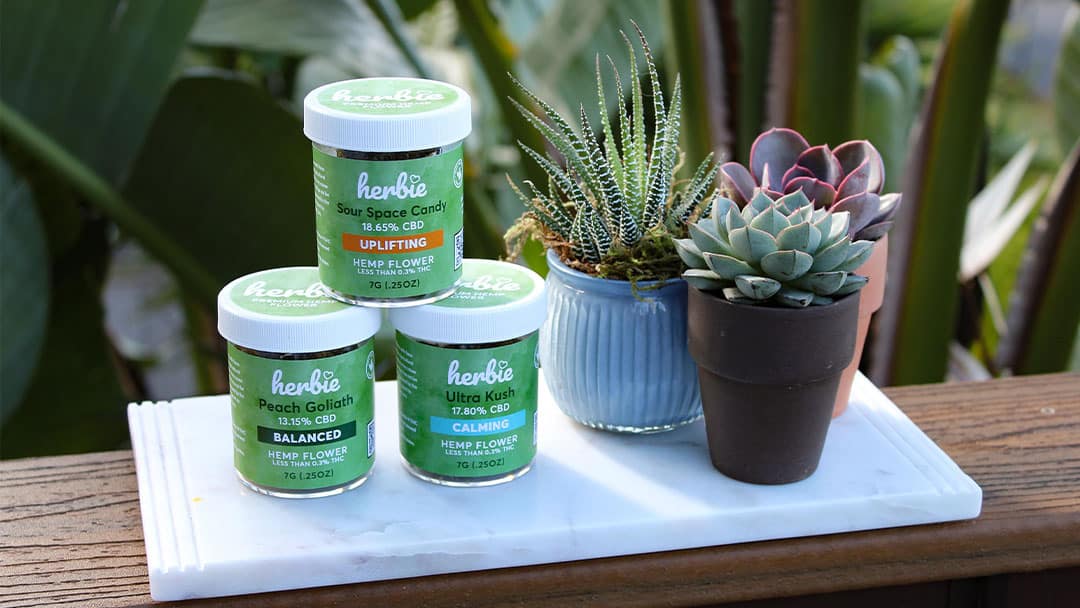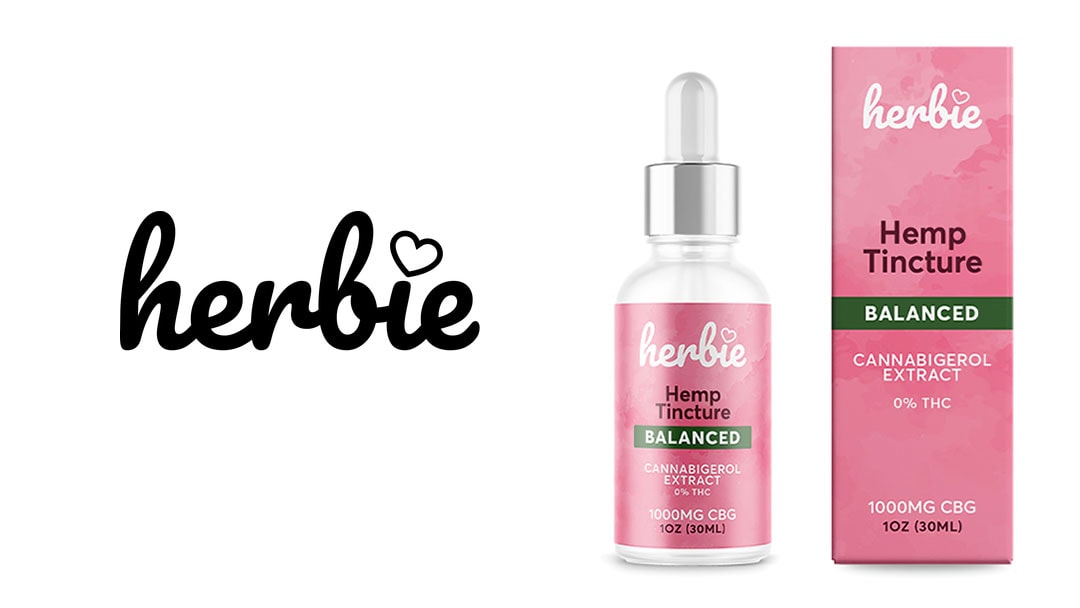Is CBD or CBG Better for Chronic Pain?
 CBD and CBG are among the most common compounds found in the hemp plant. Both of these compounds belong to the cannabinoid group, which gives cannabis its recreational and medical properties.
CBD and CBG are among the most common compounds found in the hemp plant. Both of these compounds belong to the cannabinoid group, which gives cannabis its recreational and medical properties.
Related: What Are Cannabinoids?
CBD, a non-psychoactive compound, is the most abundant cannabinoid found in hemp and has a wide range of potential medical applications. It's generally considered safe for consumption.
On the other hand, CBG is found only during the hemp plant's blooming phase. Research has shown that CBG has promising therapeutic properties, but because of the plant's short blooming window, it's challenging to find quality CBG-rich products.
We'll explore the use of CBD and CBG for chronic pain.
How are CBD and CBG Similar?
Both compounds are cannabinoids that offer potential medicinal benefits. Many medical studies suggest that CBD and CBG share several similar benefits, including:
- CBD and the CBG both act on the CB2 receptor in the endocannabinoid system, which is responsible for regulating things like our physical well-being, emotion, and cognition.
- Both compounds are non-psychoactive, meaning that, unlike THC, there is not a "high" associated with consumption.
- Some studies show that both CBD and CBG have the potential to help anxiety, inflammation, and pain.
- Finally, both compounds start out as cannabigerol acid (CBGA) before transforming into their final state when that cannabis or hemp plant matures.
How are CBD and CBG Different?
On the other hand, some studies show that CBG offers some benefits not available from CBD, like:
- CBD only interacts with the CB2 receptor, while CBG interacts with CB1 and CB2 receptors.
- CBG seems to affect how our bodies uptake noradrenaline, which may impact hypervigilance and deep sleep.
- CBG is the only cannabinoid found to affect noradrenaline and muscle tissue.
- Because of these potential benefits and differences, CBG may be superior when it comes to muscle-relaxing effects.
How Does CBD Work For Chronic Pain?

CBD, which is the most well-researched cannabinoid, has evidence to support its potential to help treat chronic pain conditions, autoimmune conditions, neurodegenerative disorders, and a variety of other health conditions.
Potential Benefits
With more studies on CBD than CBG, we've seen research supporting some therapeutic benefits of CBD, including:
- Pain relief
- Reduced stress and anxiety
- Improved sleep
- Neuroprotective properties
However, like with other cannabinoids, there is still a lot to learn. We look forward to seeing more research on the medical use of CBD in the future as the space continues to grow.
Potential Side Effects
Although CBD is generally well-tolerated, it can cause side effects, like reduced appetite, dry mouth, fatigue, and drowsiness. The cannabinoid can also interact with some medications, including blood thinners.
Related: Ways to Consume CBD
How Does CBG Work for Chronic Pain?

CBG is a similar cannabinoid but may have some promising therapeutic applications. Some research has shown the compound to have antifungal, antiparasitic, and antibacterial properties. It's also shown promise in inhibiting the growth of cancer cells and reducing inflammation without the psychoactivity associated with THC.
Potential Benefits
There isn't a lot of current research delving into the potential benefits of CBG. However, some preclinical studies have offered some insight into how it interacts with our bodies. CBG may offer therapeutic benefits, like:
- Appetite stimulation
- Antibiotic properties
- Anti-cancer properties
- Potential treatment for bacterial infections like MRSA
As interest in CBG grows, we expect to see a lot more studies about this cannabinoid in the next few years. Hopefully, as more research and clinical studies are conducted, we can gain a better understanding of the potential benefits that CBG has to offer.
Potential Side Effects
As we mentioned above, there is not much research on the use of CBG yet. However, the most commonly reported side effects of CBG are dry mouth and nausea. There are some reports of increased anxiety when taking high doses of CBG.
Which is Better for Chronic Pain: CBD or CBG?
In the end, it's up to you. CBD is the most well-studied and researched of the two, but as more scientists and organizations look into the therapeutic properties of CBG, its benefits are looking promising, too.
Both CBD and CBG have potential benefits that interact with our bodies in different ways. If you tolerate cannabinoids well and are looking for alternative ways to treat your chronic pain, you might want to consider trying CBD and CBG to see if they are effective for you.
The culture surrounding cannabinoids and the hemp plant is still relatively new, but researchers are performing new studies all the time to uncover the potential health benefits of these compounds.
What CBD or CBG Dosage Should I Take for Chronic Pain?
First, let's talk about calculating CBD and CBG dosages.
Depending on the product, you'll notice dosages expressed in different ways. For CBD and CBG gummies and capsules, the listed dosage is typically per unit. For example, our CBD and CBG gummies contain 25 mg per gummy. On the other hand, CBD and CBG tinctures and oils typically list their dosages for the entire bottle. For example, our line of tinctures contains 1000 mg per 30 mL bottle, meaning a full 1 mL dropper contains 33 mg of CBD or CBG.
When it comes to dosing CBD and CBG, everyone is different. It's always best to start with a low dose to see how it affects you — you can always increase it as needed. For example, our thousand milligrams tinctures contain relatively high doses of CBD and CBG; we typically recommend starting with a low dose of .25 mL to 0.5 mL and adjusting it once you know how your body reacts to the cannabinoids.
Related: Beginner's Guide to CBD
CBD and CBG Are Both Options for Helping with Chronic Pain
CBD and CBG are similar but unique cannabinoids. The hemp plant contains much more CBD, but we can also extract CBG from it to use in various products. As you learned above, both of these compounds can offer a variety of potential therapeutic benefits.
As for which one is best to help with your chronic pain, it's mostly up to individual preference. If you want to try CBD or CBG to see if it helps with your pain, you can experiment with both cannabinoids or a combination of the two — just remember the potential side effects, the fact that they may interact with other medications, and to start with a low dose.
Thinking about trying CBG or CBD to see if it can help with your chronic pain? Stop by our shop at Herbie to find the best CBG and CBD gummies, tinctures, and more!
